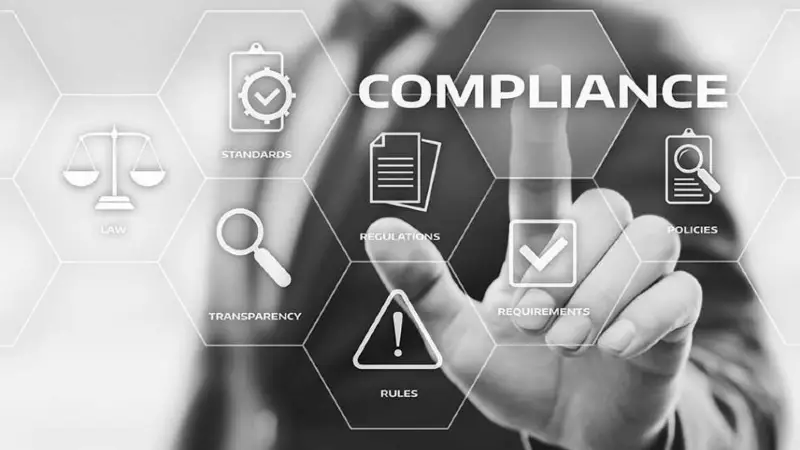How to Protect Yourself From Unscrupulous Debt Collectors in New Zealand
An Easy-to-Understand Guide with Examples, Case Studies, and Resources for Kiwis
Debt collection is a part of life that many Kiwis may face, and unfortunately, not all debt collectors follow ethical practices. In New Zealand, unscrupulous debt collectors can use illegal or deceptive tactics to pressure you into paying a debt, even when it’s not legitimate, or the amount is incorrect. This guide will help you understand your rights, protect yourself from these unethical practices, and provide examples, case studies, and resources available in New Zealand.
Key Sections :
What Are Unscrupulous Debt Collectors?
Unscrupulous debt collectors in New Zealand engage in unethical or illegal behavior to intimidate, deceive, or harass people into paying debts, whether or not the debt is legitimate. These actions often violate consumer protection laws, such as the Fair Trading Act and the Credit Contracts and Consumer Finance Act (CCCFA).
Common Tactics Used by Unscrupulous Debt Collectors in New Zealand
Unscrupulous debt collectors often employ the following tactics:
- Harassment: Repeated calls at all hours, threats, and aggressive behavior.
- Misrepresentation: Claiming to be a lawyer, a government official, or threatening legal action they cannot take.
- Excessive Fees: Adding unauthorized interest or fees to the debt.
- Incorrect Claims: Attempting to collect debts that are incorrect, already paid, or not owed.
- Threats of Arrest: Using illegal threats of imprisonment or property seizure.
Understanding Debt Collection Laws in New Zealand
New Zealand has consumer protection laws designed to protect you from unethical debt collection practices. Key laws include:
- Fair Trading Act 1986: Prohibits misleading and deceptive conduct in trade, which applies to debt collection agencies.
- Credit Contracts and Consumer Finance Act (CCCFA) 2003: Ensures fairness in credit contracts and consumer finance, regulating how interest, fees, and penalties are applied.
- Privacy Act 2020: Protects your personal information from being misused by debt collectors.
Case Study 1: Dave’s Harassment by a Debt Collection Agency
Dave from Auckland began receiving constant phone calls from a debt collector, even during his work hours, about an old gym membership that he had canceled years ago. Despite Dave explaining that the debt had been resolved, the calls continued, and the collector began threatening legal action.
How Dave Protected Himself:
Dave reached out to the Commerce Commission to report the debt collector for harassment under the Fair Trading Act. He also requested written proof of the debt. Once he sent a written request for proof, the calls stopped, and the collector was unable to validate the debt, confirming Dave was not liable.
Your Rights as a Consumer in New Zealand
In New Zealand, you have specific rights when dealing with debt collectors, guided by the debt collection rules in NZ. These include:
- Right to written documentation: Debt collectors must provide written proof of the debt, including details of the amount owed and the original creditor.
- Right to dispute the debt: If you believe the debt is incorrect or invalid, you have the right to dispute it in writing.
- Right to privacy: Debt collectors cannot share details of your debt with unauthorized parties.
- Right to fair treatment: You are protected from harassment, deceptive practices, and unfair treatment by debt collectors.
Case Study 2: Sarah’s Experience with Unauthorised Charges
Sarah from Wellington was contacted by a debt collection agency demanding payment for a utility bill she had already paid. The agency added extra charges to the debt without any explanation. Sarah asked for an itemized breakdown of the charges, which they refused to provide.
How Sarah Protected Herself:
Sarah sought advice from Consumer NZ and was advised to request written proof of the debt under the Fair Trading Act. She also contacted the original creditor to confirm her payment history, proving that the debt had been paid. The debt collector eventually dropped their claim.
Steps to Protect Yourself from Unscrupulous Debt Collectors
Protecting yourself from unethical debt collection practices involves knowing your rights and taking the right steps:
- Request Written Proof of the Debt:
Always request written documentation that verifies the debt, including the original creditor’s details. - Keep a Record of All Communications:
Maintain a log of all interactions with the debt collector, including phone calls, emails, and letters. This documentation will help if you need to file a complaint. - Dispute the Debt in Writing:
If you believe the debt is incorrect, write to the debt collector disputing the debt. Be clear and provide supporting documentation if possible. - Know Your Legal Rights:
Familiarize yourself with the relevant New Zealand laws, including the Fair Trading Act and the CCCFA, to ensure the debt collector is acting within legal bounds. - Send a Cease-and-Desist Letter:
If the collector continues to harass you, send a formal cease-and-desist letter. This letter can demand that they stop contacting you unless they provide proof of the debt. - Report to Authorities:
If the debt collector violates your rights, report them to the Commerce Commission, Financial Markets Authority (FMA), or Consumer NZ. - Seek Legal Help:
If the harassment continues or escalates, consider seeking legal advice from a consumer lawyer or advocate.
Case Study 3: Matt’s Success with Disputing a Debt
Matt received a notice from a debt collector regarding an unpaid rental bill that was several years old. The collector added interest charges that significantly increased the debt. Matt was certain that the debt had been resolved years ago and disputed the claim.
How Matt Protected Himself:
Matt wrote to the debt collection agency asking for verification of the debt and the details of the charges added. He also provided his own records showing that the debt had been paid. After reviewing his dispute, the agency dropped the claim and apologized for the mistake.
FAQs: Protecting Yourself from Unscrupulous Debt Collectors in New Zealand
- What should I do if a debt collector refuses to provide proof of the debt?
If a debt collector refuses to validate your debt, do not make any payments. Report them to the Commerce Commission and request written documentation again. - Can debt collectors call me at any time?
No, debt collectors must not contact you at unreasonable times or repeatedly harass you. You have the right to fair treatment. - Can a debt collector charge extra fees?
Debt collectors cannot add unauthorized fees or charges beyond what was agreed upon in the original contract. You should dispute any unexplained fees. - What happens if I send a cease-and-desist letter?
Once a cease-and-desist letter is received, the debt collector must stop contacting you unless it is to inform you of legal action or confirm that communication will stop. - How do I know if a debt collector is legitimate?
Legitimate debt collectors will provide written proof of the debt, including the creditor’s name and the amount owed. They will not harass or use illegal threats.
Resources for Protecting Yourself from Unscrupulous Debt Collectors in New Zealand
- Commerce Commission New Zealand:
The Commerce Commission enforces laws such as the Fair Trading Act and CCCFA, which protect consumers from unethical debt collection practices.
Commerce Commission Website - Consumer Protection NZ:
Offers advice on handling debt collectors and ensures your rights are protected under New Zealand law.
Consumer Protection NZ Website - Consumer NZ:
Provides guidance and support on how to deal with debt collectors and resolve disputes.
Consumer NZ Website - Citizens Advice Bureau (CAB):
Offers free advice on your rights and how to handle debt collection disputes in New Zealand.
CAB Website - Community Law:
Free legal services that help Kiwis deal with consumer rights issues, including debt collection.
Community Law Website
Conclusion
Dealing with debt collectors in New Zealand can be challenging, especially when they employ unscrupulous tactics. Knowing your rights under New Zealand law and taking proactive steps can help you protect yourself from unethical practices. Always demand proof of the debt, keep detailed records, and report any violations to the proper authorities. With the right knowledge and resources, you can confidently handle debt collection and protect your financial well-being.


